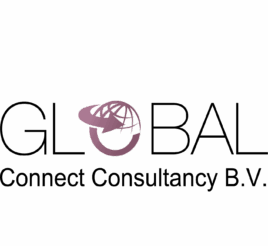
The accounting profession is experiencing a transformative phase driven by emerging trends and technologies. One of the most influential technologies shaping the future of accounting is blockchain. This decentralized digital ledger has the potential to revolutionize recordkeeping processes and introduce new possibilities for audit and assurance. In this article, we will delve into the impact of blockchain on the audit profession and explore the challenges and opportunities it presents. Additionally, we will discuss the need for accountants to stay updated on blockchain business applications, its role in accounting, and the evolving landscape of audit technology.
The Potential Impact of Blockchain on the Audit Profession:
Blockchain technology holds tremendous potential to transform the way auditors execute engagements. While traditional audit and assurance services will remain crucial, auditors must adapt to the changing landscape influenced by blockchain and new accounting technology. The implications of blockchain on the audit profession were highlighted in a paper titled „Audit & Assurance Alert—Blockchain Technology and Its Potential Impact on the Audit and Assurance Profession,“ published by CPA Canada, the Association of International Certified Professional Accountants, and the University of Waterloo Centre for Information Integrity and Information System Assurance.
Key Highlights of Blockchain in Accounting:
Blockchain technology has the capacity to disrupt various recordkeeping processes, impacting the initiation, processing, authorization, recording, and reporting of transactions. As companies explore blockchain business opportunities, accounting firms are engaging in blockchain initiatives to comprehend the implications of this versatile technology. It is imperative for audit and assurance professionals to stay informed about blockchain business applications, blockchain in accounting, and blockchain audit technology.
Understanding Blockchain:
Blockchain is a digital ledger that captures transactions conducted among multiple parties in a network. It operates as a peer-to-peer, distributed ledger where all participants maintain identical copies of the ledger. Blockchain has unique characteristics, including near real-time settlement, distributed ledger functionality, irreversibility of transactions, and resistance to censorship. These attributes make it a powerful technology with the potential to impact various industries.
The Impact on Audit and Assurance:
Although some believe that blockchain technology could render financial statement audits unnecessary, there are crucial aspects of auditing beyond transaction verification. Auditors must assess the reliability, relevance, and accuracy of recorded transactions, supported by appropriate evidence. While blockchain may provide audit evidence for certain financial statement assertions, auditors still need to consider factors like unauthorized transactions, related-party dealings, off-chain agreements, and the classification of transactions. Additionally, auditors will continue to address management’s estimates and perform procedures to evaluate the reliability of blockchain data.
Challenges and Considerations:
Widespread adoption of blockchain may enable auditors to obtain audit data from central locations and develop procedures to extract evidence directly from blockchains. However, auditors must assess the reliability of blockchain data and consider general information technology controls and consensus protocols. As organizations embrace private or public blockchains, auditors must evaluate their impact on financial statements, address incremental risks, and tailor audit procedures accordingly. It is important to note that blockchain technology cannot replace the independent judgment and professional skepticism of auditors, as trust in financial statements is vital for the functioning of capital markets.
Conclusion:
While blockchain technology is poised to reshape the accounting profession, it will not replace financial reporting or financial statement auditing in the immediate future. However, accountants must familiarize themselves with blockchain fundamentals, monitor technological advancements, and collaborate with experts to effectively audit blockchain-related risks. Embracing the opportunities and challenges presented by widespread blockchain adoption will allow the auditing profession to evolve and adapt to the changing business landscape. By staying informed and proactive, auditors can capitalize on their ability to meet the dynamic needs of the modern business world.
The future of accounting is being shaped by emerging trends and technologies such as blockchain. As the audit profession evolves, accountants must keep pace with blockchain business applications, understand its impact on accounting and familiarize themselves with blockchain fundamentals, monitor technological advancements, and collaborate with experts to effectively audit blockchain-related risks.
Sources:
https://www2.deloitte.com/bd/en/pages/audit/articles/gx-impact-of-blockchain-in-accounting.html
Photo by Jonathan Borba: https://www.pexels.com/photo/light-dark-laptop-technology-14354111/
